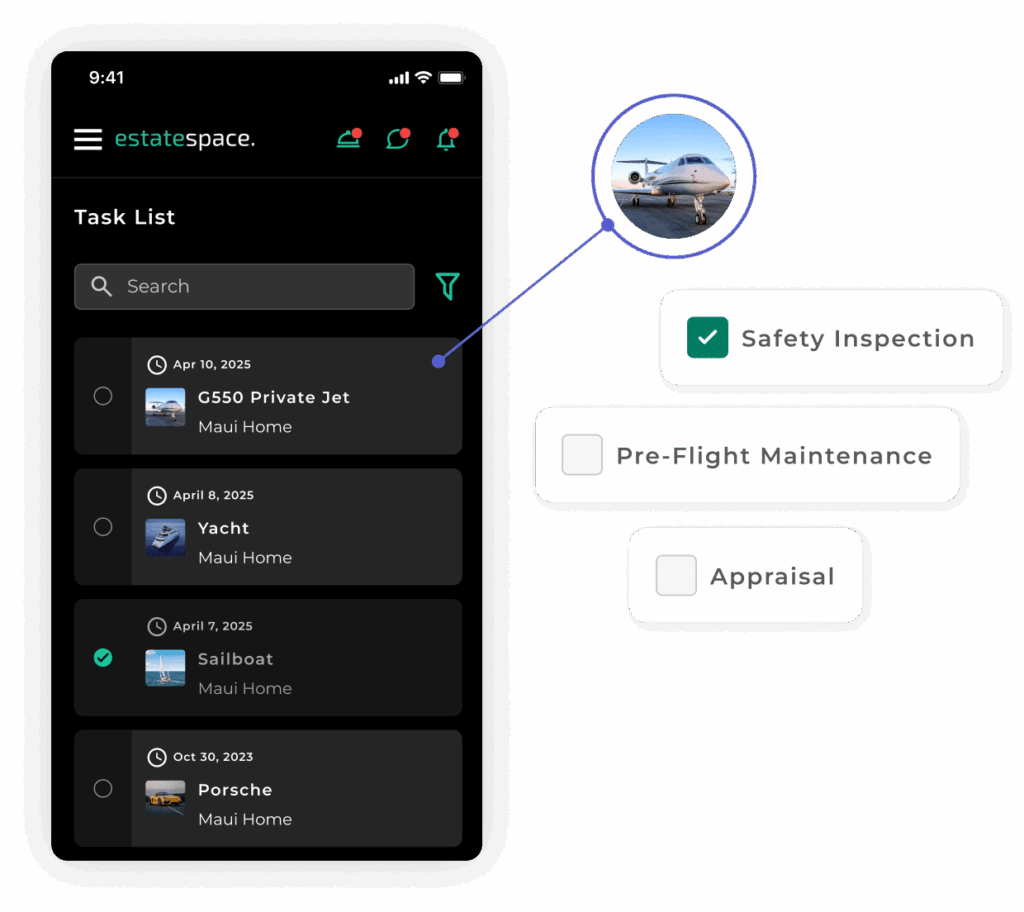Understanding estate manager responsibilities is crucial for professionals seeking to excel in luxury property management. Furthermore, modern estate managers must balance traditional service excellence with cutting-edge technology, leveraging AI-powered platforms to streamline complex operations while reducing administrative overhead by up to 33%.
Core Estate Manager Responsibilities
Estate Manager Responsibilities: Property Operations and Maintenance
The core duties encompass comprehensive property management that goes far beyond basic maintenance. Specifically, these professionals serve as the central command for all estate operations, ensuring seamless functionality across multiple systems and areas:
- Complete property maintenance coordination including HVAC, security systems, and landscaping
- Furthermore, vendor management and contractor oversight to ensure quality service delivery
- Additionally, asset inventory tracking for valuable items, artwork, and equipment
Staff Management and Leadership Development
One of the most critical aspects of the role involves overseeing domestic staff, from hiring and training to performance management. This requires sophisticated people management skills combined with AI-powered tools that streamline:
- Staff scheduling and performance management across multiple departments
- Moreover, training program development for household staff and service teams
- In addition, clear communication protocols between all estate personnel and family members
Estate Manager Responsibilities: Financial Management and Budgets
Key duties include sophisticated financial oversight that requires both strategic thinking and operational precision. Additionally, modern estate managers must handle:
- Multi-property budget development and expense allocation
- Subsequently, vendor contract negotiation and payment processing oversight
- Finally, financial reporting and cost analysis for estate operations
How AI Enhances Estate Manager Responsibilities
Intelligent Operations Management
Traditional estate management involves juggling countless duties across multiple domains. Consequently, AI-powered platforms transform how estate managers fulfill their core responsibilities by providing unified oversight capabilities. Moreover, these comprehensive solutions enable:
- Complete lifecycle management from acquisition to maintenance across all physical assets
- Similarly, automated compliance monitoring for insurance, legal, and regulatory requirements
- Most importantly, integrated communication systems that connect all stakeholders in real-time
Automated Task Coordination and Scheduling
One of the most demanding aspects of the role involves coordinating schedules, tasks, and communications across multiple stakeholders. As a result, smart automation platforms handle:
- Automated scheduling coordination across staff, vendors, and family calendars
- Meanwhile, predictive maintenance alerts based on equipment usage and historical data
- Simultaneously, integrated communication platforms that streamline all estate-related correspondence
Enhanced Decision-Making Capabilities
AI doesn’t replace the human expertise required for these demanding duties—instead, it amplifies decision-making capabilities. Furthermore, modern platforms provide access to:
- Predictive analytics for maintenance planning and operational optimization
- In contrast, performance benchmarking against industry standards and best practices
- Ultimately, data-driven insights for strategic decision-making and resource allocation
Optimizing Estate Manager Responsibilities with Technology
Assess Your Current Operational Framework
Before implementing AI-powered solutions to enhance your professional duties, first evaluate your existing processes:
- First, identify time-consuming manual processes in daily operations
- Next, map current communication workflows between staff, vendors, and family
- Finally, calculate existing operational costs and identify inefficiency areas
Look for Comprehensive Technology Solutions
When selecting technology to enhance your effectiveness, prioritize solutions that address the full spectrum of professional duties:
- Multi-property management capabilities for estate managers overseeing multiple locations
- Additionally, staff coordination tools that handle scheduling, training, and performance tracking
- Furthermore, financial oversight features including budgeting, expense tracking, and vendor management
- Most importantly, compliance monitoring systems that ensure all regulatory and insurance requirements are met
Focus initial implementation on areas with immediate ROI:
- First, staff communication and scheduling automation to reduce coordination time
- Second, maintenance tracking and alerts to prevent costly emergency repairs
- Third, vendor management systems for streamlined service provider coordination
- Finally, financial reporting automation for accurate budget tracking and expense analysis
The Evolution of Professional Estate Management
AI can lower skill barriers, helping estate managers expand their capabilities and handle increasingly complex duties with greater efficiency. As a result, this democratization of technology means estate professionals can now access sophisticated tools that enhance their ability to deliver exceptional service.
The most successful estate managers view AI-powered platforms as strategic partners that enhance their core duties by:
- Handles routine operational tasks while preserving time for relationship building
- Provides data-driven insights for better decision-making
- Enables scalable service delivery across multiple properties
- Demonstrates measurable value through cost reduction and operational efficiency

Key Benefits for Estate Managers Using AI-Powered Platforms:
- 33% reduction in administrative overhead through intelligent task automation
- Similarly, 60% improvement in coordination efficiency via streamlined communication workflows
- In addition, enhanced service quality through proactive maintenance and systematic oversight
- Most importantly, professional development advancement by mastering both traditional skills and modern technology
Mastering the professional role requires both traditional expertise and modern technological fluency. By embracing AI-powered platforms, estate managers transform from reactive coordinators into strategic operational leaders who deliver measurable value while maintaining the exceptional service standards that define luxury estate management.
Ultimately, success lies in understanding that technology amplifies rather than replaces the human elements central to effective estate management. Therefore, estate managers who master this integration—leveraging AI for operational efficiency while preserving personal expertise for relationship management and strategic oversight—will excel in serving the evolving needs of high-net-worth clients.
Ready to enhance your professional effectiveness with AI-powered efficiency?
Discover your potential with EstateSpace’s comprehensive platform and see how technology can amplify your operational excellence while reducing administrative overhead by 33%.



